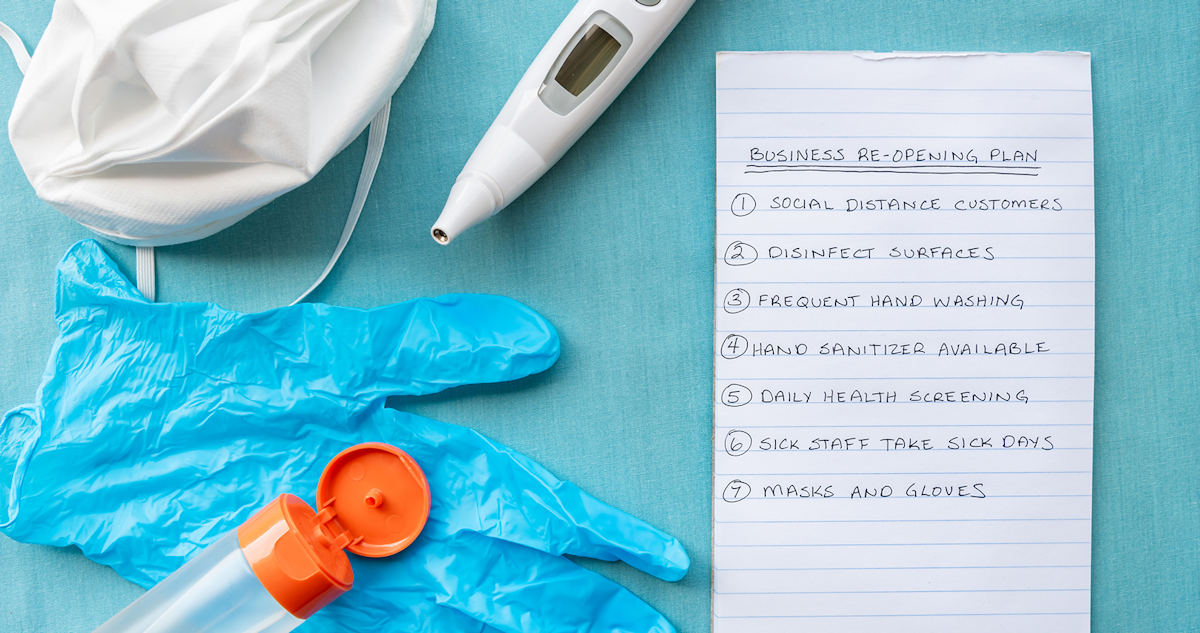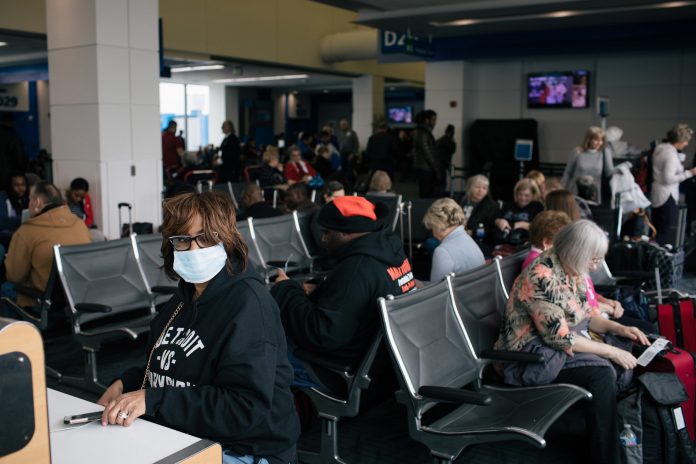Public health experts agree on the need for widespread testing to be in place before businesses can reopen and the economy restarts. But not every government official is on board. In May, there is a real risk that Nigerians will be asked to return to work before our public health infrastructure is in place to keep them safe.
So what can each of us do to protect ourselves in this scenario and help keep those around us safe? The answer depends in part on what group you fall into: Government, Employer, Union, Employee.
It is vital that workers’ health, safety and livelihoods are protected as we continue to work or return to work outside the home. During this pandemic, unions across the UK in multiple sectors have negotiated agreements with employers to protect workers’ safety. As the return to work begins, unions will seek to negotiate safe return to work policies. But too many employers (especially those where there are yet no recognized union) have undermined the safety and wellbeing of staff by their actions
Some guidlines that needs to be in place
1. Return To Work; What Do Workers Think?
We know that workers need reassurance about returning to work. 41% (49 per cent of women) say that they are somewhat or very worried about returning to work outside the home. The government must ensure that workers’ mental health and wellbeing is prioritized alongside physical safety.
The government must run a public information campaign to ensure working people can be confident that health and safety at work is a priority as they return to work. This should be on a scale like recent public information campaigns about coronavirus actions.
2. Ensuring A Safe Return To Work Outside The Home

Many workers have continued to work outside the home, risking their health and in some cases their lives to keep the country going. Too many of them have been let down by the failure of government to secure adequate personal protective equipment, and of employers to put adequate protections in place. Urgent action is needed to ensure that no-one is put in danger by their job.
Every employer must carry out a specific Covid-19 risk assessment. Employers should work with unions and workers to assess the risks in the workplace, and set out specific steps, including enforcing social distancing, for how these can be mitigated and how workers can work safely. Personal protective equipment (PPE) must be provided where necessary, and no-one should be asked to re-use.
3. Ensuring no one is forced to work in an unsafe workplace
Workers need to know that where these measures are not in place they will not be forced into an unsafe workplace. No worker should face a sanction for refusing to work in an unsafe workplace. Employees have the right to withdraw from and to refuse to return to an unsafe workplace, and the legal protection from dismissal, disciplinary or any other detriment for raising a health and safety issue. Employers must be reminded of this and workers must have this right guaranteed.
4. Travelling to work

Without significant changes to travelling patterns, unions believe it is not possible for social distancing measures to be in place on public transport, especially at peak times. As part of its plan for a mass return to work outside the home, the government must provide guidance for employers, commuters and transport providers on what measures are needed to safeguard public health. For example, in public transport it is recommended that passengers are seated one seat apart. the government must make this clear and ensure transport providers are meeting those measures.
Employers should be encouraged to allow workers to stagger their shift times to avoid overcrowding on public transport, and should consider maintaining significant numbers of workers working from home where possible in order to reduce pressure on public transport
5. Specific groups of workers
The government must provide clear advice to employers and working people on what any change in restrictions means for those in the ‘shielded’ category (e.g those whose health conditions put them at additional risk). This group will contain a significant number of older workers, so employers and government should give due regard to avoiding discriminatory treatment. If this group cannot return to work outside the home safely, they should be supported to continue observing social distancing.
Employers must be reminded of their existing legal obligation to specifically assess the workplace risks for pregnant employees and breastfeeding mothers who have returned to work. The risks to women of childbearing age and expectant and new mothers must be considered as part of the general risk assessment and discussed with workers who are pregnant or breastfeeding.


